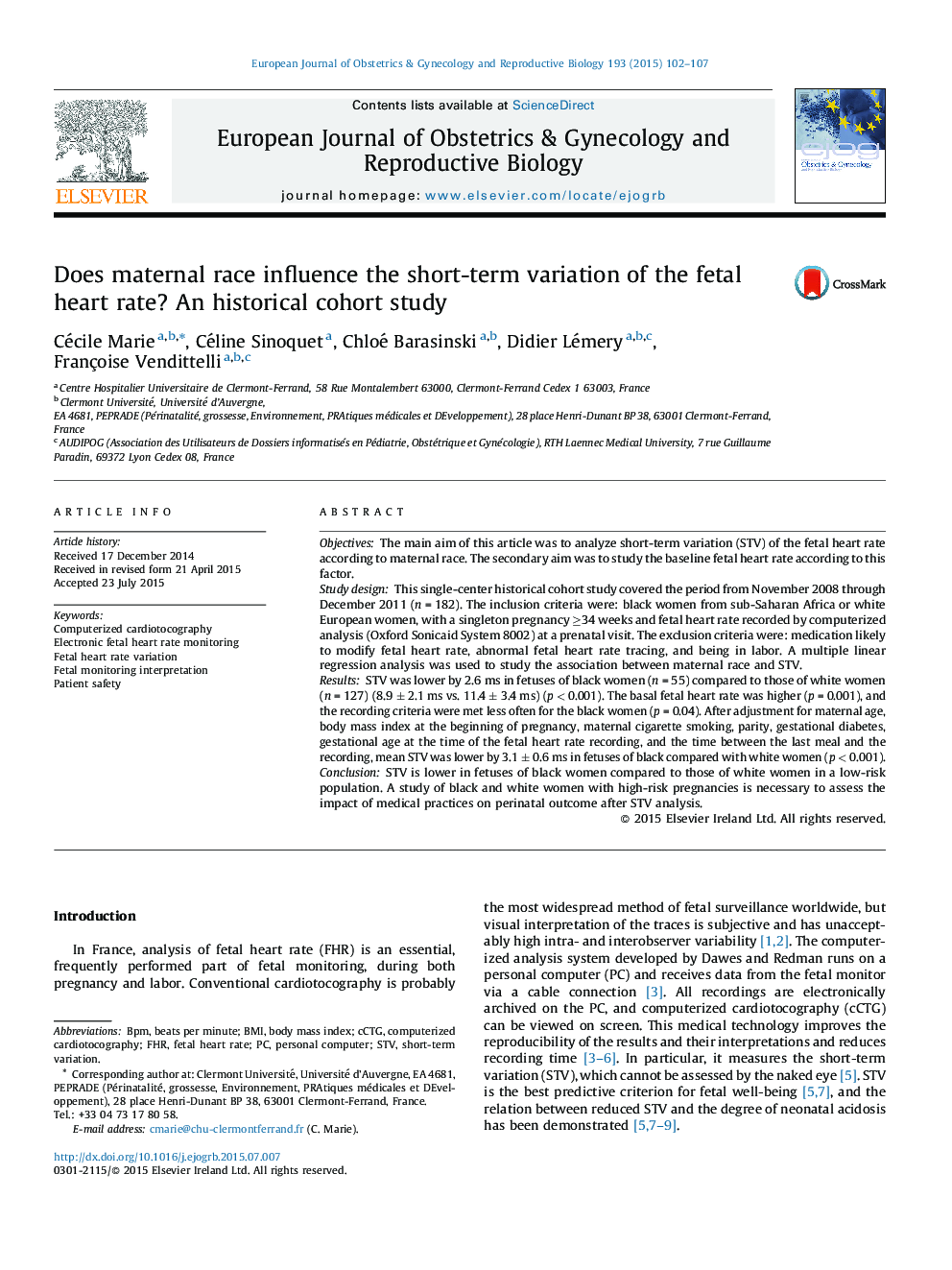| Article ID | Journal | Published Year | Pages | File Type |
|---|---|---|---|---|
| 3919344 | European Journal of Obstetrics & Gynecology and Reproductive Biology | 2015 | 6 Pages |
ObjectivesThe main aim of this article was to analyze short-term variation (STV) of the fetal heart rate according to maternal race. The secondary aim was to study the baseline fetal heart rate according to this factor.Study designThis single-center historical cohort study covered the period from November 2008 through December 2011 (n = 182). The inclusion criteria were: black women from sub-Saharan Africa or white European women, with a singleton pregnancy ≥34 weeks and fetal heart rate recorded by computerized analysis (Oxford Sonicaid System 8002) at a prenatal visit. The exclusion criteria were: medication likely to modify fetal heart rate, abnormal fetal heart rate tracing, and being in labor. A multiple linear regression analysis was used to study the association between maternal race and STV.ResultsSTV was lower by 2.6 ms in fetuses of black women (n = 55) compared to those of white women (n = 127) (8.9 ± 2.1 ms vs. 11.4 ± 3.4 ms) (p < 0.001). The basal fetal heart rate was higher (p = 0.001), and the recording criteria were met less often for the black women (p = 0.04). After adjustment for maternal age, body mass index at the beginning of pregnancy, maternal cigarette smoking, parity, gestational diabetes, gestational age at the time of the fetal heart rate recording, and the time between the last meal and the recording, mean STV was lower by 3.1 ± 0.6 ms in fetuses of black compared with white women (p < 0.001).ConclusionSTV is lower in fetuses of black women compared to those of white women in a low-risk population. A study of black and white women with high-risk pregnancies is necessary to assess the impact of medical practices on perinatal outcome after STV analysis.
